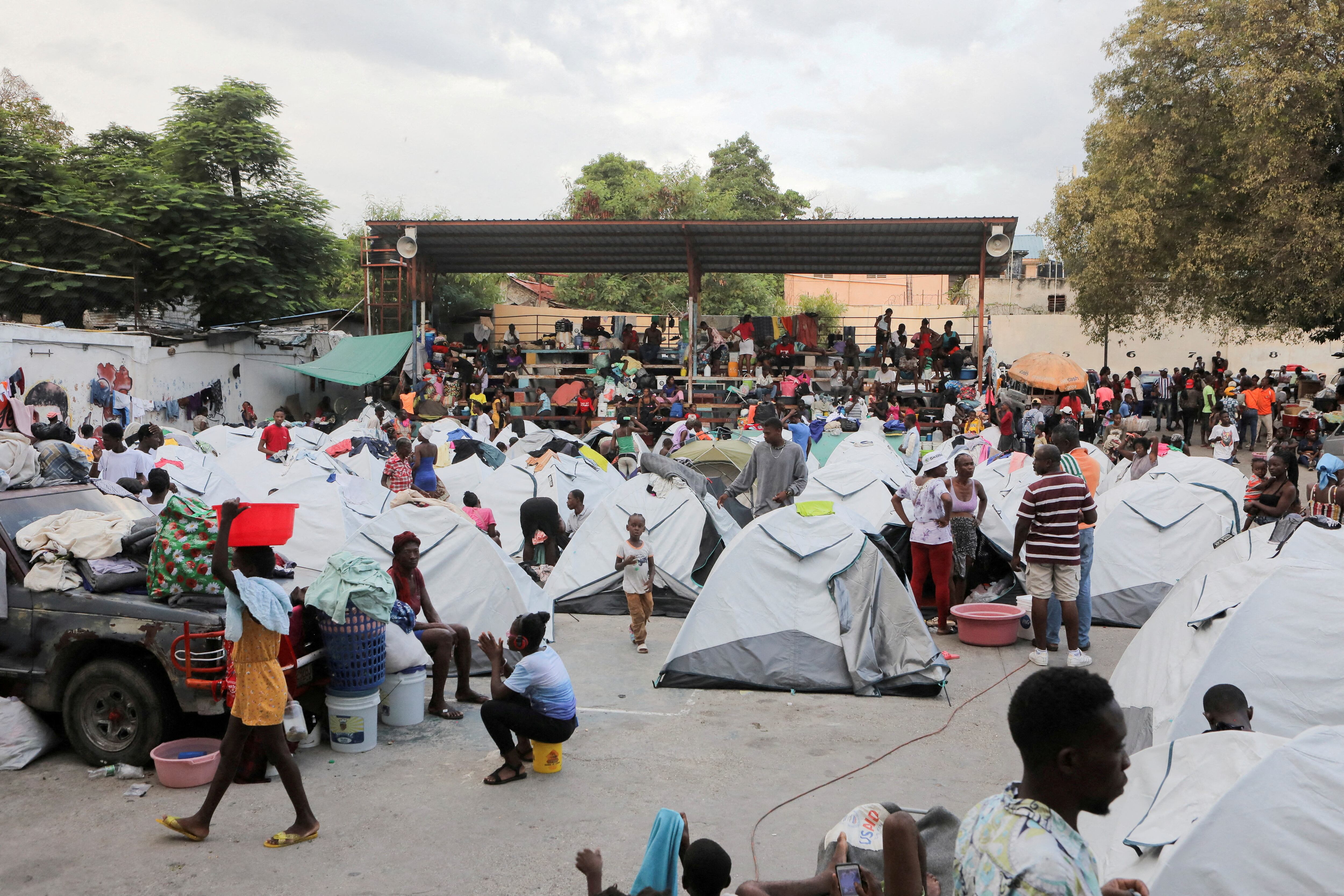Unprecedented Violence in Haiti
Since October 2024, Haiti has plunged into an abyss of violence, with nearly 5,000 lives claimed by rampant gang warfare. The latest report from the U.N. High Commissioner for Human Rights (OHCHR) reveals staggering statistics: 4,864 people have been killed, and over 1,000 of these deaths occurred in and around the capital Port-au-Prince. The humanitarian crisis is now deeper than ever, as hundreds of thousands of individuals flee their homes in search of safety, leaving behind shattered communities.
Humanitarian Disaster Deepening
The surge in violence has created a humanitarian disaster that is intensifying daily. Hospitals, including the vital University Hospital of Mirebalais, have shuttered due to insecurity, worsening an already fragile health sector where less than 25% of health facilities around Port-au-Prince remain operational, according to UN estimates. The consequences of this violence are dire: families are displaced, children are traumatized, and access to essential services is severely compromised.

Haiti gang violence deaths surge in 2024, UN report says ...
State Abandonment and Gangs Filling the Void
The power vacuum left by a weak state has allowed gangs to flourish, taking control of large swathes of territory. As reported by AP News, gang leaders have seized this moment to assert their dominance, often with extreme violence. Authorities are overwhelmed, and the international community has failed to provide the necessary support to restore order. This neglect not only exacerbates the crisis in Haiti but also poses a significant threat to regional stability.
International Community"s Inadequate Response
Despite the alarming situation, the response from the international community has been tepid. U.N. resident and humanitarian coordinator Ulrika Richardson emphasized the need for stronger support to Haitian authorities. However, the reality remains that the security situation continues to deteriorate. The Kenya-led, U.N.-authorized Multinational Security Support Mission (MSS) has not yielded the desired outcomes. The ongoing violence raises critical questions about the effectiveness of foreign interventions and the long-term solutions to the crisis.

Key hospital in central Haiti closes due to gang violence ...
Socioeconomic Implications of Violence
The gang violence has not only claimed lives but also deepened economic inequalities in a nation already grappling with poverty and lack of resources. The displacement of families and the closing of health facilities have created a perfect storm for an economic collapse. As reported by BBC News, with the local economy in shambles and international aid dwindling, many Haitians face the grim reality of food insecurity and unemployment. The cycle of violence and poverty feeds into one another, perpetuating a state of despair that requires urgent attention and action.

![[Video] Anti-ICE Protester Pepper Sprayed as CBP Agents Disperse Crowd in Minneapolis](/_next/image?url=%2Fapi%2Fimage%2Fthumbnails%2Fthumbnail-1768260677127-y71sb7-thumbnail.jpg&w=3840&q=75)

![[Video] Several injured as U-Haul truck drives through Iranian protestors in Los Angeles](/_next/image?url=%2Fapi%2Fimage%2Fthumbnails%2Fthumbnail-1768176682028-q95y6j-thumbnail.jpg&w=3840&q=75)
![[Video] Scuffle breaks out between Trump supporters and Anti-ICE protesters in Times Square](/_next/image?url=%2Fapi%2Fimage%2Fthumbnails%2Fthumbnail-1768165958203-hgcgb-thumbnail.jpg&w=3840&q=75)


![[Video] Gunfire between Iraqi security forces and Sadr militias in Baghdad](/_next/image?url=%2Fapi%2Fimage%2Fthumbnails%2Fthumbnail-1768343508874-4redb-thumbnail.jpg&w=3840&q=75)
